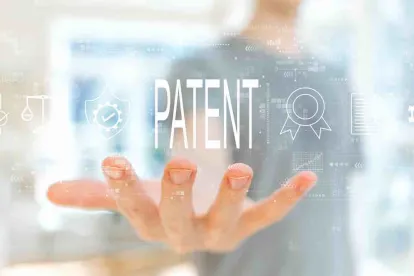Patent Fee Reductions
It's that time again - Congress has passed another massive omnibus spending bill, and buried within its 4,400 pages are a few provisions that could have significant implications for small and micro entity patent applicants. Don't worry if you missed them - it's not your fault. The patent fee reductions were easy to overlook amidst the pages and pages of budgetary minutiae and pork barrel spending. Nonetheless, everyone should take note of these changes, as they could have a significant impact on the cost of your application process.
The Consolidated Appropriations Act, 2023, which was signed into law on December 29, 2022, includes several provisions aimed at promoting innovation and reducing the barriers to obtaining patents. Tucked into the omnibus spending package is the Unleashing American Innovators Act of 2022, which reduces patent fees for small and micro entities among other provisions. The reduction in fees is significant for individuals and small companies, with the small entity fee discount increasing from 50% to 60% and the micro entity fee discount increasing from 75% to 80%. The fee reductions apply to a range of patent-related fees, including those for filing, searching, examining, and maintaining patents. For example, the initial fee for filing, searching, and examining a new non-provisional utility patent application for a small entity is reduced to $728 from $910 before the omnibus bill, and for a micro entity is reduced to $324 from $455. Similarly, the fee for filing a new provisional patent application is reduced to $120 from $150 for a small entity, and to $60 from $75 for a micro entity. These fee reductions are intended to promote innovation by making it less expensive for small and micro entities to protect their inventions. By reducing the cost of obtaining a patent, the Act should encourage more inventors to pursue patent protection, which in turn will promote economic growth and job creation.
One other notable change in the Consolidated Appropriations Act, 2023, is a new penalty for falsely claiming small entity status. Under the new law, anyone who knowingly makes a false statement regarding their eligibility for small entity status will be subject to a penalty of no less than three times the fee underpayment, with no pre-defined upper limit on that amount. The actual fine amount is subject to rulemaking by the U.S. Patent and Trademark Office (USPTO). This new penalty is in addition to any other penalties that may be imposed for making false statements to the USPTO. The change is designed to ensure that only eligible applicants are able to take advantage of the reduced patent fees for small entities and micro entities. All applicants should be aware of this new penalty and should carefully evaluate eligibility for small or micro entity status before claiming it. Making a false claim could result in significant financial penalties, could damage an applicant's reputation with the USPTO, and could still render a patent unenforceable if the false claim is made intentionally.
Trademark Office Action Response Deadlines
In addition to the patent fee reductions, the USPTO has implemented new rules for responding to trademark Office actions. As of December 2, 2022, trademark applicants now have only three months to respond to Office actions issued by the USPTO. If a response is not filed within this timeframe, the application will be abandoned. The new rule is designed to streamline the trademark application process and reduce the backlog of pending applications. It will also help ensure that applications are processed in a timely manner, benefiting both applicants and the USPTO. If an applicant cannot respond to an Office action within three months, they can request one three-month extension of time by paying a $125 fee. This fee is similar to the fee for extending the response deadline for Office actions on patent applications, and is designed to encourage applicants to respond as quickly as possible while still providing some flexibility.
Before the USPTO implemented the new rules, trademark applicants had six months to respond to Office actions issued by the USPTO. The longer response period gave applicants more time to gather evidence and prepare their responses, but also resulted in a backlog of pending applications on the trademark examiner’s dockets. Under the old system, some applicants would wait until the end of the six-month period to respond to Office actions, which led to further delays in the application process. In some cases, it could take years for an application to be approved or rejected, with the applicant’s speed of response contributing to the extended pendency. The new rules are designed to encourage applicants to respond to Office actions more quickly, which will ultimately benefit both the USPTO and trademark applicants.
Conclusion
The 2023 reductions in patent fees for small entities and micro entities, and the new rules regarding trademark Office action response deadlines, should prove beneficial to our clients over time. The patent fee discounts facilitate access for small clients to the patent process by reducing the cost of obtaining patent protection for their inventions. The reduced period for responding to trademark Office actions should reduce the pendency time from filing a trademark application to receiving a trademark registration by encouraging applicants to respond faster and reducing the backlog of applications being processed by the trademark examiners. Reduced costs for obtaining patents and reduced time for obtaining trademark registrations ultimately help our clients to protect their valuable intellectual property assets.




 />i
/>i
